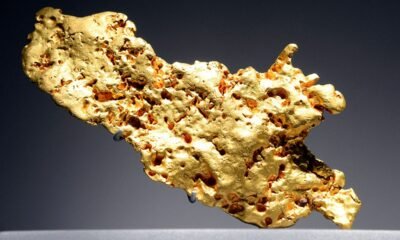INTERNACIONAL
What we know about Trump’s meeting with Vladimir Putin in Alaska

NEWYou can now listen to Fox News articles!
A historic summit is set to be held between President Donald Trump and Russian President Vladimir Putin in Alaska on Friday.
Though specifics on the summit like the time and exact location remain unknown, all eyes will be on the talks as world leaders wait to see what, if anything, can be accomplished in Putin’s first trip to the U.S. in a decade.
Here’s what we know:
U.S. President Donald Trump meets with Russian President Vladimir Putin in Helsinki, Finland, July 16, 2018. (REUTERS/Kevin Lamarque)
VLADIMIR PUTIN TO RETURN TO US FOR THE FIRST TIME IN A DECADE
AGENDA
White House press secretary Karoline Leavitt confirmed on Tuesday that Trump will travel to Anchorage on Friday morning for what she described as a «listening exercise» with Putin.
Trump, who on Monday described the talks as a «feel-out meeting,» has made clear that his chief agenda item will be to determine whether a ceasefire in Ukraine is even possible.
When pressed by reporters this week as to what he specifically hopes to achieve from the in-person talks with Putin — particularly following seemingly positive calls that only resulted in a «frustrated» Trump and continued Russian bombardment in Ukraine — the president was light on specifics.
Though he told reporters that he thinks he will know whether a ceasefire deal with Putin is even possible within the first «two minutes.»
«I’m not going to make a deal. It’s not up to me to make a deal,» he said. «I think a deal should be made for both [Putin and Ukrainian President Volodymyr Zelenskyy].
«I’d like to see a ceasefire. I’d like to see the best deal that could be made for both parties. You know, it takes two to tango,» he added.
TRUMP GOES AFTER ZELENSKYY OVER ‘LAND SWAPPING’ DISPUTE, LAYS OUT ‘FEEL OUT MEETING’ WITH PUTIN
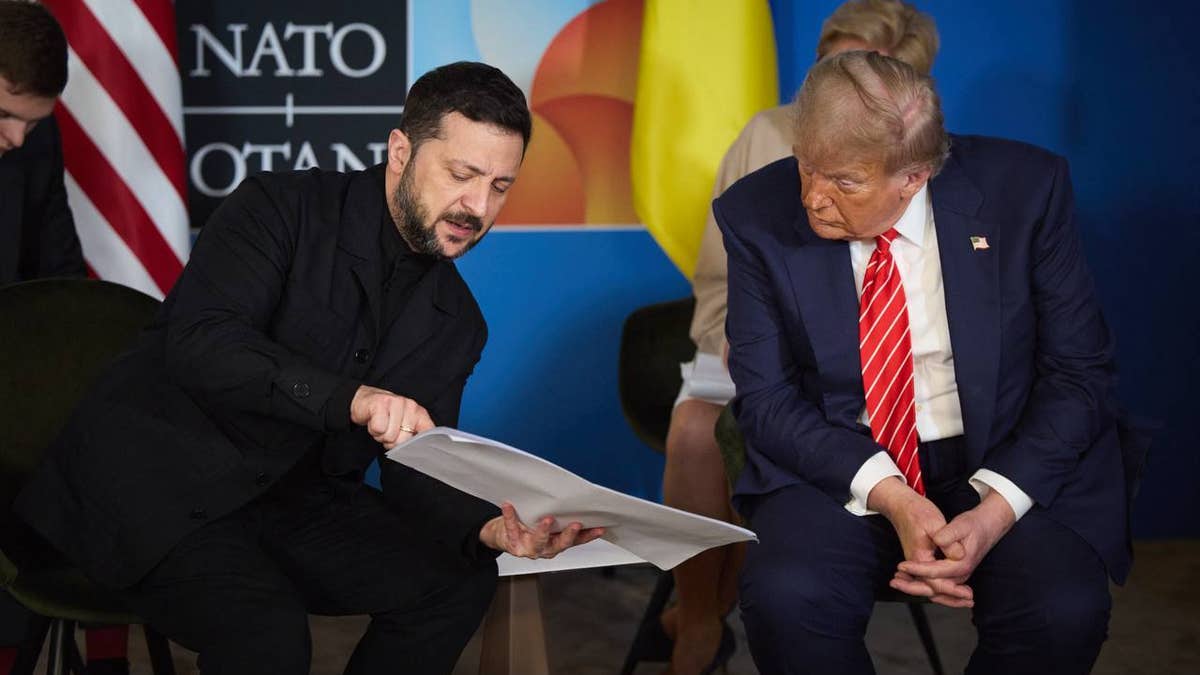
U.S. President Donald Trump and Ukrainian President Volodymyr Zelenskyy meet during the NATO Heads of State and Government Summit in The Hague, Netherlands on June 25, 2025. (Getty Images)
EXPECTATIONS
Trump has raised geopolitical eyebrows over the last week when he suggested there would be a land «swap» that Russia and Ukraine would need to agree to.
While it remains unclear which borders he thinks will likely be moved around, particularly which Russian borders he foresees Putin handing over to Kyiv, Ukrainian President Volodymyr Zelenskyy and his allies in NATO have made clear any deal forged without Ukraine will not be acceptable.
Zelenskyy over the weekend reiterated that he cannot unilaterally agree to cede territory illegally occupied by Russia without a national referendum under Ukraine’s Constitution.
«Any decisions that are without Ukraine are at the same time decisions against peace,» he added. «They will not bring anything. These are dead decisions. They will never work.»
Following a meeting with top EU officials on Monday, chief diplomat for the EU Kaja Kallas told Fox News Digital, «Ukraine’s right to exist as a sovereign nation is under attack, as well as the security of our European continent.»
«As far as Russia has not agreed to full and unconditional ceasefire, we should not even discuss any concessions,» she said. «It has never worked in the past with Russia, and will not work with Putin today.
Trump, who is slated to hold talks with Ukraine and NATO allies on Wednesday, said he will first call Zelenskyy following his talks with Putin, followed by calls to European leaders.

French President Emmanuel Macron, European Commission President Ursula Von der Leyen, NATO Secretary General Mark Rutte, Japanese Prime Minister Shigeru Ishiba, German Chancellor Friedrich Merz, US Secretary of Treasury Scott Bessent, Canadian Prime Minister Mark Carney, Ukrainian President Volodymyr Zelenskyy, British Prime Minister Keir Starmer, and Italian Prime Minister Giorgia Meloni meet during the Group of Seven (G7) Summit at the Pomeroy Kananaskis Mountain Lodge in Kananaskis, Alberta, Canada on June 17, 2025. (LUDOVIC MARIN/AFP via Getty Images)
EU HITS BACK AT TRUMP, ZELENSKYY COMMENTS, NO CONCESSIONS IN UKRAINE BEFORE PUTIN CEASEFIRE AGREEMENT
WHY ALASKA
Though geographically speaking, Anchorage is a near equal distance from Moscow and Washington, D.C., the president prompted surprise when he said Putin had agreed to meet him in Alaska rather than a third-party state, like Switzerland or Hungary, both of which were floated as potential meeting locations.
However, both locations held dubious optics, as Switzerland, a member of the International Criminal Court, could be obligated to act on the 2023 ICC arrest warrant issued against Putin, and Hungary, though frequently seen as sympathetic to Russia, is a NATO member state.
«They probably avoided Europe, because if they included Europe, then Europe would have demanded that they’re actually at the table,» Dan Hoffman, former CIA Moscow Station Chief, told Fox News Digital. «Probably your two choices were go to Russia — which Trump would never do — or invite him here.
«It also exposes the challenge that you can’t solve this without Ukraine and without Europe,» he added.
But Alaska also has a shared history with the U.S., which Washington purchased from Saint Petersburg — then the capital of Russia — in 1867.
Though this shared past was championed by some in Russia and the U.S., like the Kremlin’s special economic envoy Kirill Dmitriev, who called it the «perfect stage» for the Putin-Trump talks, others took to social media to suggest it showed the precarious nature of sovereign borders.
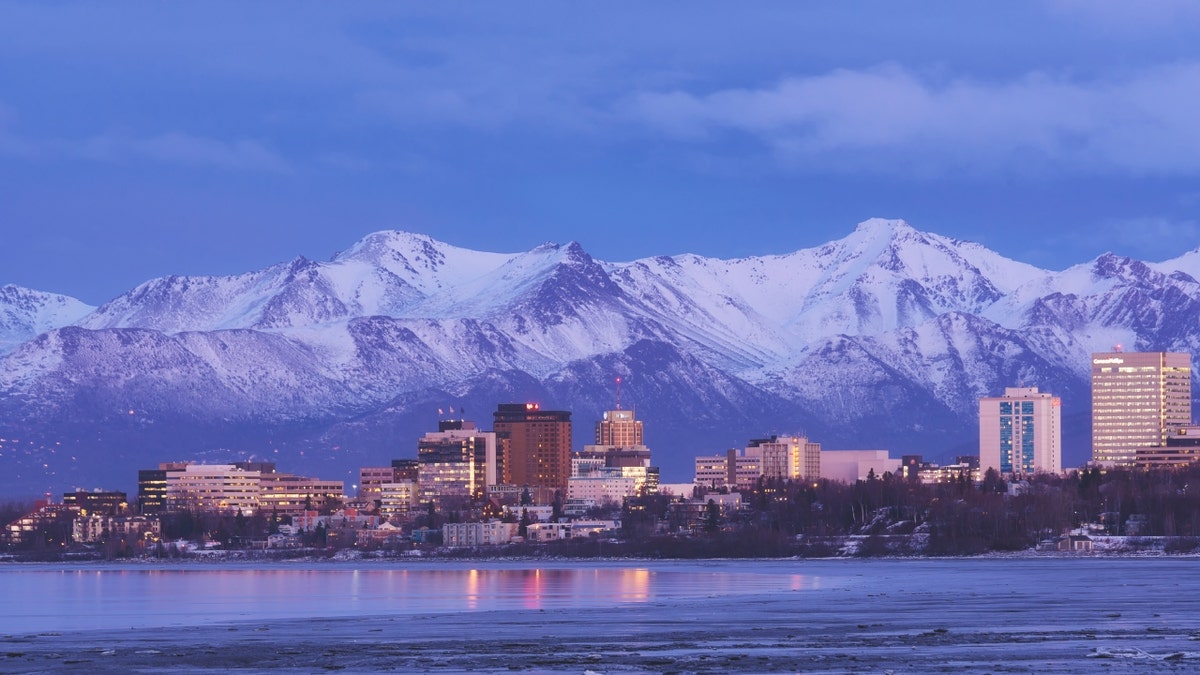
Anchorage, Alaska is set to receive both President Donald Trump and Russian President Vladimir Putin for a high-level bilateral meeting on Friday Aug. 15, 2025. (Zihao Chen via Getty Images)
ZELENSKYY TELLS PUTIN TO ‘BE BRAVE’ AND FINALLY AGREE TO TRILATERAL MEETING WITH TRUMP
ZELENSKYY’S ROLE
Zelenskyy does not appear to have been officially invited to the talks, which the White House on Tuesday confirmed are the result of a direct invitation from Putin.
«The president is agreeing to this meeting at the request of President Putin,» Leavitt said Tuesday. «And the goal of this meeting for the president is to walk away with a better understanding of how we can end this war.»
Zelenskyy is set to hold talks with the U.S. president ahead of the high-level bilateral meeting on Wednesday alongside other European leaders.
Zelenskyy has repeatedly said he is open to meeting with Putin directly to end the war, though Putin has thus far refused.

Poland’s Prime Minister Donald Tusk, Ukrainian President Volodymyr Zelensky, French President Emmanuel Macron, Britain’s Prime Minister Keir Starmer and Germany’s Chancellor Friedrich Merz, hold a telephone conversation with US President Trump on the sidelines of a meeting at the 6th European Political Community summit on May 16, 2025 at Skanderbeg Square in Tirana, Albania. (KuglerSteffen/Bundesregierung via Getty Images)
WHAT’S NEXT
Trump on Monday said his goal is that following his meeting with Putin, the Kremlin chief will sit down with Zelenskyy to begin hashing out terms for a ceasefire — whether or not it includes him in direct negotiations.
«Ultimately, I’m going to put the two of them in a room. I’ll be there, or I won’t be there,» Trump said Monday. «And I think it’ll get solved.»
CLICK HERE TO GET THE FOX NEWS APP
Zelenskyy on Tuesday said he also discussed the possibility of holding high-level talks organized by Turkey, which has hosted previous diplomatic negotiations that have failed to secure any lasting ceasefire agreements, but have released thousands of Ukrainian and Russian prisoners of war (POWs).
«We are ready for any format of meeting aimed at stopping the killings and ending the war,» Zelenksyy said. «President Erdoğan confirmed his country’s readiness to organize a summit of the leaders of Ukraine, the United States, Russia, and Türkiye.»
Experts have warned it is too soon to tell what could come out of the talks with Putin on Friday.
donald trump,vladimir putin,russia,ukraine,alaska,volodymyr zelenskyy,world
INTERNACIONAL
Cómo el estrés acelera el envejecimiento biológico: claves y consejos para revertirlo, según la ciencia

El estrés puede acelerar el proceso de envejecimiento biológico en personas de todas las edades. Esto ocurre cuando el organismo enfrenta situaciones que exceden sus recursos, lo que produce una sobrecarga que afecta tanto la salud física como la mental.
Distintos estudios científicos señalan que las marcas del estrés intenso en el cuerpo son visibles, pero reversibles si la causa desaparece. La relación entre el estrés y el envejecimiento despierta un interés especial en la actualidad, donde la expectativa de vida supera los 60 años en gran parte del mundo.
En ese sentido, expertos consultados por Psicología y Mente aseguraron que es esencial comprender la diferencia entre la edad cronológica y la edad biológica. La primera define el tiempo transcurrido desde el nacimiento de una persona.

En cambio, la edad biológica se refiere al estado real del organismo en comparación con ese tiempo. Este concepto incorpora la genética y los hábitos de vida. Un factor relevante es el estrés, que podría provocar que la edad biológica aumente y se distancie de la cronológica, acelerando así el envejecimiento.
De acuerdo con la información presentada por los especialistas, el estrés es una reacción natural frente a demandas que superan la capacidad de respuesta del individuo. El cuerpo y la mente activan este proceso para afrontar situaciones adversas.
Esta activación permite superar obstáculos, mejora la eficiencia y favorece la adaptación en ciertas circunstancias. Sin embargo, si la recuperación no se produce y el estrés persiste, el organismo sufre un desgaste significativo que afecta las funciones físicas y mentales.

Los síntomas del estrés afectan varios ámbitos de la salud. Entre los más habituales se encuentran dolores de cabeza, trastornos digestivos, rigidez en la mandíbula, fatiga y cansancio. Además, investigaciones recientes demuestran que el impacto no se limita a molestias puntuales, sino que también propicia un envejecimiento acelerado a nivel biológico.
Ciertos momentos de la vida, como una cirugía, una internación en la unidad de cuidados intensivos por una enfermedad como el COVID-19, o el embarazo, pueden generar un aumento medible en la edad biológica. Un trabajo publicado en la revista Cell Metabolism documentó que el incremento en la edad biológica, producido en estos escenarios, puede revertirse días o meses después cuando desaparece la causa del estrés.
En tanto, un estudio previo, también publicado en Cell Metabolism, demostró que incluso una sola noche de privación de sueño genera aumentos medibles en la edad biológica a través de marcadores epigenéticos e inmunológicos. Sin embargo, los investigadores comprobaron que estos efectos pueden revertirse completamente cuando se restablecen patrones normales de descanso.

En ese tono, la investigación dirigida por Jesse R. Poganik y su equipo, perteneciente al Departamento de Medicina del Brigham and Women’s Hospital, Facultad de Medicina de Harvard, examinó muestras de sangre en pacientes mayores que se sometieron a una intervención quirúrgica.
Según los datos obtenidos, la edad biológica mostró una notable elevación inmediatamente antes del procedimiento. Sin embargo, los valores regresaron a lo habitual entre cuatro y siete días después de la operación. El estudio también incluyó a personas hospitalizadas por COVID-19 y a mujeres gestantes. En ambos grupos, una vez finalizada la situación estresante, la edad biológica volvió a registros similares a los anteriores.
El patrón se observa con claridad: mientras el factor estresante está presente, la edad biológica aumenta. Cuando se elimina ese factor, el cuerpo puede recuperar su estado anterior. Este hallazgo genera optimismo, ya que indica que los efectos negativos del estrés sobre el envejecimiento no resultan definitivos en la mayoría de los casos.

De acuerdo con información recopilada en Psicología y Mente, la resiliencia psicológica cumple un rol fundamental en la protección frente a los daños del estrés. Las personas con mayor capacidad de adaptación a las dificultades experimentan menos aceleración en el envejecimiento biológico. Investigadores observaron que quienes regulan mejor sus emociones y mantienen autocontrol logran mayor resistencia a los efectos del estrés en el organismo.
La adopción de hábitos saludables también contribuye a reducir el impacto negativo del estrés sobre el proceso de envejecimiento. Según los especialistas citados por Psicología y Mente, una alimentación equilibrada, la actividad física regular, la abstinencia de tabaco y alcohol, y el cuidado emocional favorecen la prevención de enfermedades y fortalecen la capacidad de recuperación. Estas pautas ayudan a mantener durante más tiempo la autonomía y la calidad de vida.
La ciencia considera el envejecimiento como una acumulación de daños celulares y moleculares, un proceso que se acelera cuando el cuerpo se ve sometido de manera sostenida a situaciones que generan estrés. Este desgaste puede reducir la funcionalidad física y mental, aumentar el riesgo de enfermedades e, incluso, adelantar la aparición de dependencia.

Los resultados de las investigaciones recientes revelan la importancia de prestar atención a los signos de estrés y de buscar recuperarse en forma activa. Cuando las personas logran calmar los factores que les provocan sobrecarga, los indicadores biológicos mejoran y la “edad” del organismo desciende hasta alcanzar registros normales.
El conocimiento sobre la relación entre estrés y envejecimiento permite a individuos y comunidades actuar de manera informada. La salud integral requiere atención tanto en el plano físico como en el mental. La detección y la gestión efectiva del estrés, sumadas a la resiliencia y a estilos de vida saludables, constituyen las mejores estrategias para cuidar el cuerpo y mantener el bienestar a lo largo de los años.
El control del estrés, la adopción de hábitos sanos y el fortalecimiento emocional se imponen así como claves en la búsqueda de una vida larga y plena. La evidencia muestra que evitar el impacto negativo del estrés está al alcance de la mayoría si se asumen conductas de cuidado y prevención.
adult,anxiety,burnout,business,business operations,business pressure,business tasks,businesswoman,camera,challenges,company,computer,corporate,deadline,deadlines,disappointment,emotional strain,employee,enterprise,entrepreneur,executive,exhaustion,fatigue,financial,frustration,goals,growth,headache,laptop,low energy,manager,managing,mental,mental exhaustion,migraine,multinational company,objectives,office,office burnout,overload,overwhelmed,pressure,professional,professional struggle,project,projects,stress,successful,technology,tough day,woman,worker
INTERNACIONAL
Speaker Johnson hit with Democrat-led lawsuit over delayed swearing-in amid House shutdown chaos
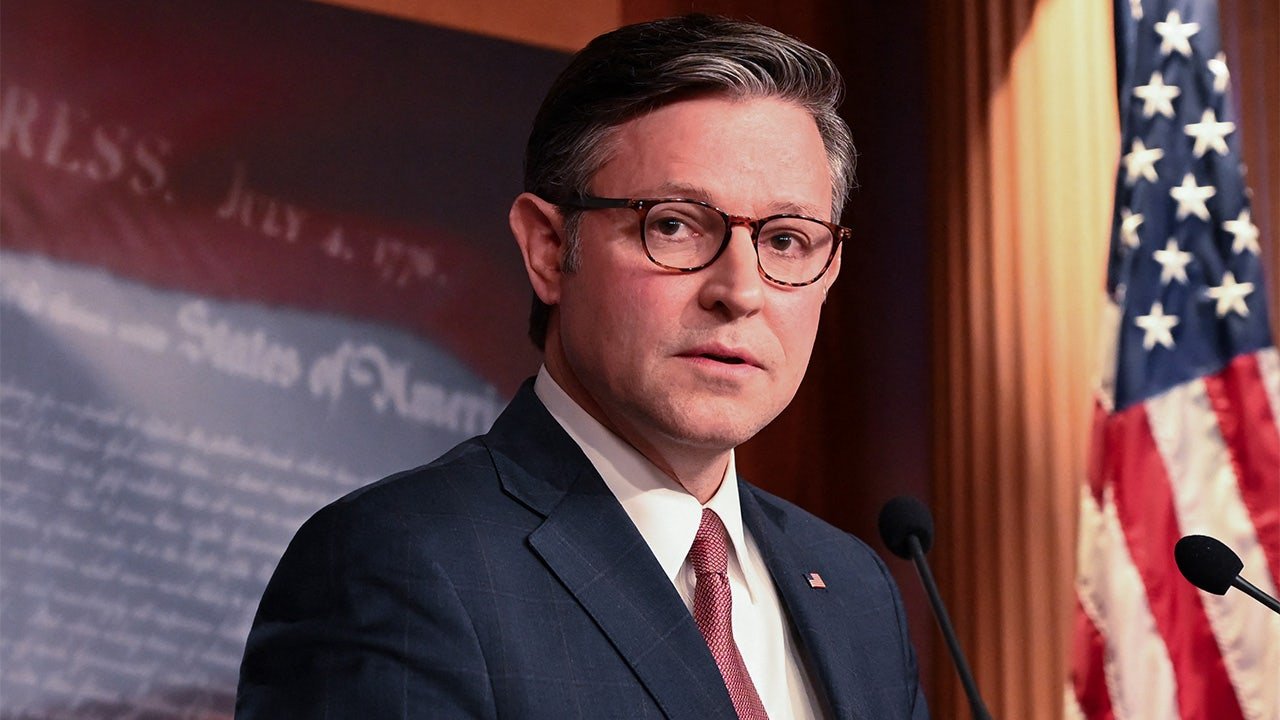
NEWYou can now listen to Fox News articles!
The state of Arizona is suing Speaker Mike Johnson, R-La., over the delayed swearing-in of Rep.-elect Adelita Grijalva, D-Ariz.
«Speaker Mike Johnson is actively stripping the people of Arizona of one of their seats in Congress and disenfranchising the voters of Arizona’s seventh Congressional district in the process,» Arizona Attorney General Kris Mayes, a Democrat, said in a statement.
«By blocking Adelita Grijalva from taking her rightful oath of office, he is subjecting Arizona’s seventh Congressional district to taxation without representation. I will not allow Arizonans to be silenced or treated as second-class citizens in their own democracy.»
Johnson dismissed the lawsuit as a bid to get «national publicity» in comments to reporters earlier this week and on Tuesday evening.
BATTLEGROUND REPUBLICANS HOLD THE LINE AS JOHNSON PRESSURES DEMS ON SHUTDOWN
Speaker of the House Mike Johnson speaks during a news conference at the U.S. Capitol on the tenth day of the federal government shutdown on Oct. 10, 2025, in Washington, D.C. (Alex Wroblewski/AFP via Getty Images)
«I think it’s patently absurd. We run the House. She has no jurisdiction. We’re following the precedent,» Johnson said in response to the state attorney general. «She’s looking for national publicity, apparently she’s gotten some of it, but good luck with that.»
Grijalva won a special election on Sept. 23 to replace her father, late Rep. Raul Grijalva, D-Ariz., after he passed away from cancer at age 77.
Johnson has repeatedly said that Grijalva will be sworn into office when the House returns to its regular sessions. But it’s not clear when exactly that will be — the House GOP leader has threatened to keep his lawmakers out of Washington, D.C., until the ongoing government shutdown is over.
It’s a bid to pressure Senate Democrats, led by Minority Leader Chuck Schumer, D-N.Y., to agree to the GOP’s plan to fund the federal government through Nov. 21.
But Schumer and his allies have resisted thus far, sinking the Republican-led bill 11 times and keeping the shutdown going for 21 days.
House Democrats have accused Johnson of playing politics and depriving Arizona’s 7th Congressional District of representation in the process.
«Republicans on vacation for four weeks — and one of the consequences of that is that Republicans have refused, now for four consecutive weeks, to swear in Representative-elect Adelita Grijalva, depriving hundreds of thousands of people in the state of Arizona of the representation that they deserve, particularly during this challenging moment in the country,» House Minority Leader Hakeem Jeffries, D-N.Y., said during a press conference on Tuesday.

Rep.-elect Adelita Grijalva is interviewed in Tucson, Arizona, on July 15, 2025 (Rebecca Noble/Getty Images)
Johnson, in response to Democrats’ criticism, has repeatedly pointed out that the House was not in session when Grijalva won her election.
He’s also argued that he was following precedent set by former Speaker Nancy Pelosi, D-Calif., who waited 25 days to swear in Rep. Julia Letlow, R-La., in 2021.
Letlow had won a special election to replace her husband, Rep.-elect Luke Letlow, R-La., who died during the COVID-19 pandemic before he could be sworn into office in January 2021.
«We are not in legislative session. The chronology is important. Rep. Grijalva won her race, I think it was the last week of September, after we had already gone out of session. So I will administer the oath to her, I hope, on the first day we come back,» Johnson said.
58 HOUSE DEMS VOTE AGAINST RESOLUTION HONORING ‘LIFE AND LEGACY’ OF CHARLIE KIRK
«I’m willing and anxious to do that. In the meantime, instead of doing TikTok videos, she should be serving her constituents.»
Grijalva has argued she cannot perform her legislative or constituent duties without being sworn in first, which Johnson and Republicans have disputed.
But her swearing-in is also key to the ongoing battle over Jeffrey Epstein documents going on in the House.
Once made a member of Congress, Grijalva is expected to be the deciding signature on a measure aimed at forcing a House-wide vote on releasing Epstein documents in the Department of Justice’s (DOJ) possession.
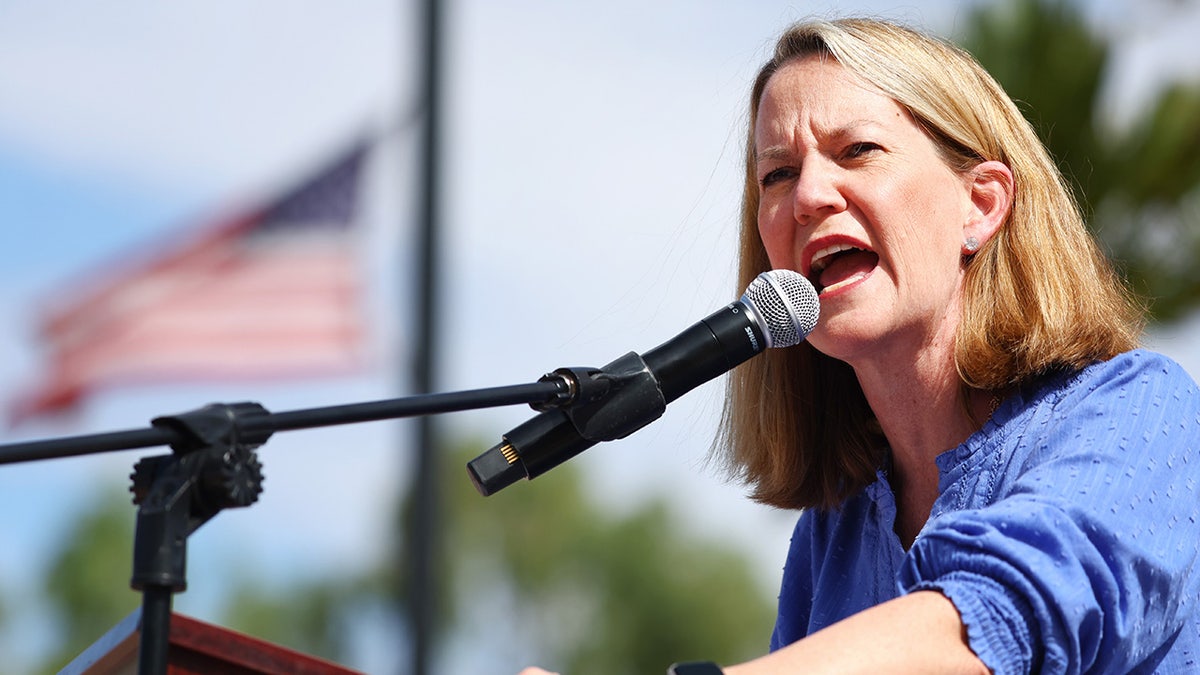
Arizona Attorney General Kris Mayes, then a Democratic candidate for her role, speaks at a Women’s March rally outside the State Capitol on Oct. 8, 2022 in Phoenix, Arizona. (Mario Tama/Getty Images)
CLICK HERE TO GET THE FOX NEWS APP
The measure, called a discharge petition, is designed to end-run House leaders on specific legislation — provided it has a majority of lawmakers’ signatures.
Johnson and House GOP leaders have called the measure superfluous and political, pointing to the chamber’s own ongoing investigation and procedures aimed at widening transparency into Epstein’s case.
However, the speaker has signaled he would not block the measure if it came to the House floor when Grijalva was sworn in.
Fox News Digital reached out to Johnson for a response but did not immediately hear back.
house of representatives politics,democrats,politics,mike johnson,arizona
INTERNACIONAL
Estado de emergencia en Perú: cuáles son las fuertes restricciones que paralizarán Lima y Callao por un mes
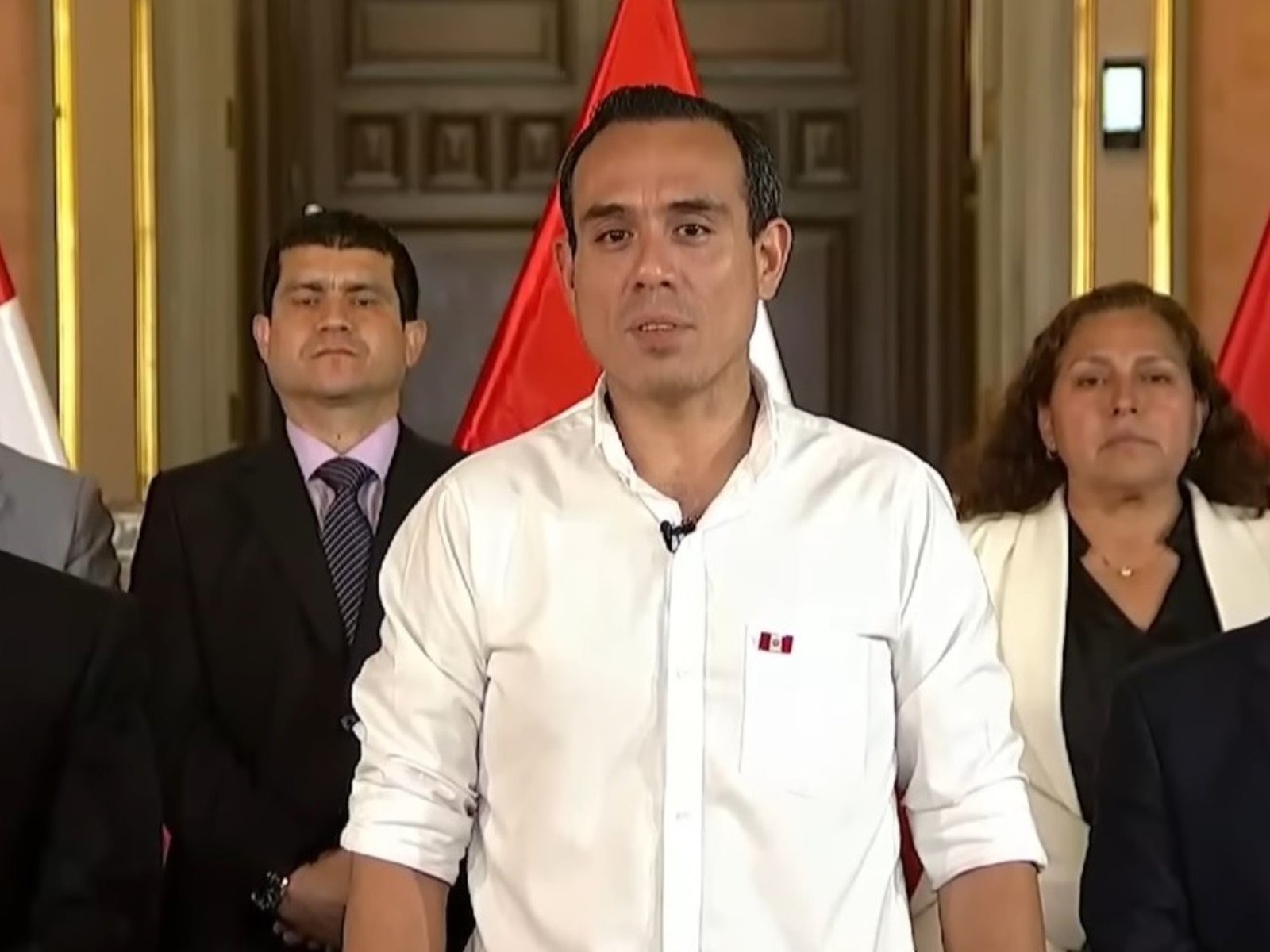
Lima quedará paralizada por un mes luego de que el presidente de Perú, José Jerí, decretara el estado de emergencia para enfrentar la ola de violencia, lo que implicó la suspensión temporal de algunos derechos constitucionales a partir de este miércoles. La medida también alcanza a la ciudad portuaria de Callao y afectará a más de 10 millones de personas.
Según el decreto publicado en el diario oficial El Peruano, mientras dure la medida quedan suspendidos derechos fundamentales como la inviolabilidad del domicilio y la libertad de reunión, en un contexto de múltiples protestas contra el Gobierno y el Congreso por diversos motivos, entre ellos la inseguridad.
Las nuevas normas permiten que las fuerzas de seguridad ingresen a cualquier vivienda y detengan a sospechosos dentro o fuera del domicilio sin orden judicial, y prohíben que la población se reúna para manifestaciones sin autorización de las autoridades.
También contempla que las Fuerzas Armadas apoyen a la Policía Nacional en el combate al crimen organizado mediante patrullas en zonas críticas, como paraderos, estaciones de metro e instituciones asociadas, y en otras situaciones de violencia.
Policías y militares custodiarán dependencias públicas e instalarán comandos temporales en coordinación con los municipios más afectados, con operativos de decomiso de armas, municiones, explosivos ilegales y artefactos pirotécnicos.
El estado de emergencia establece además restricciones en las cárceles, limitando las visitas a los internos, aplicando apagones en las celdas que permiten únicamente la iluminación y eliminando las antenas telefónicas ilegales en los alrededores.
En cuanto al tránsito, se prohíbe que dos adultos viajen en la misma moto, y las autoridades podrán solicitar documentos de identidad en las calles e incluso ingresar por la fuerza a viviendas.
El Comité de Fiscalización llevará a cabo operativos de control con apoyo de las fuerzas combinadas en áreas donde se identifiquen casos de trata de personas, venta ilegal de drogas y armas.
Las mismas medidas se aplicarán a la venta informal de chips telefónicos y equipos celulares de dudosa procedencia, suspendiendo de inmediato las líneas vinculadas a extorsiones o secuestros, según la ley vigente.
En un mensaje televisado de apenas un minuto a las 20:30 (hora local), Jerí afirmó: «La delincuencia ha crecido de manera desmesurada en los últimos años, causando un enorme dolor en miles de familias y afectando el progreso del país. Pero esto ¡se acabó!«.
Agregó que «el estado de emergencia aprobado por el Consejo de Ministros entra en vigencia a las 00 horas y por 30 días en Lima Metropolitana y el Callao», y subrayó que el gobierno pasa «de la defensiva a la ofensiva en la lucha contra el crimen, recuperando la paz, la tranquilidad y la confianza de millones de peruanos».
«Las guerras se ganan con acciones, no con palabras. ¡Viva Perú!», concluyó.
La medida es la primera acción de envergadura que toma Jerí en casi dos semanas al frente del país, donde la inseguridad es una de las principales preocupaciones de la población.
El Presidente no aclaró si pedirá al Parlamento derogar seis leyes aprobadas mientras fue legislador, consideradas por expertos como obstáculos para combatir el crimen, ya que eliminan la detención preliminar sin flagrancia, dificultan procesar partidos políticos como grupos criminales, elevan requisitos para confiscar bienes y entorpecen allanamientos y cooperación eficaz.
Jerí asumió la presidencia el 10 de octubre tras la destitución de Dina Boluarte por el Congreso, luego de un desplome en su aprobación.
Durante una multitudinaria protesta la semana pasada, que dejó un muerto en enfrentamientos con la policía, los manifestantes exigieron la renuncia del mandatario, la disolución del Parlamento y la derogación del paquete de leyes que, según expertos, debilitó la lucha contra la delincuencia.
Video
Incidentes durante una protesta frente al Congreso en Perú
Perú registra un marcado aumento de los delitos en los últimos años, con la mayoría de víctimas de la clase trabajadora: los homicidios pasaron de 676 en 2017 a 2.082 en 2024, mientras que las denuncias por extorsión subieron de 2.305 en 2020 a 21.746 el año pasado, según datos de la fiscalía.
El gobierno de Boluarte había declarado un estado de excepción en marzo, que se extendió hasta mayo, medida criticada por su escasa eficacia frente a los grupos criminales.

 CHIMENTOS2 días ago
CHIMENTOS2 días agoLa cruda confesión del Turco Naim a 1 año de la separación de Emilia Attias: «Me di cuenta que hay que aprender a estar solo»

 POLITICA3 días ago
POLITICA3 días agoExigen que Cristina Kirchner y los candidatos de Fuerza Patria aclaren si fueron financiados por el narco venezolano

 CHIMENTOS2 días ago
CHIMENTOS2 días agoPampita recibió un video inesperado de su hija Blanca en el Día de la Madre y no pudo contener la emoción



